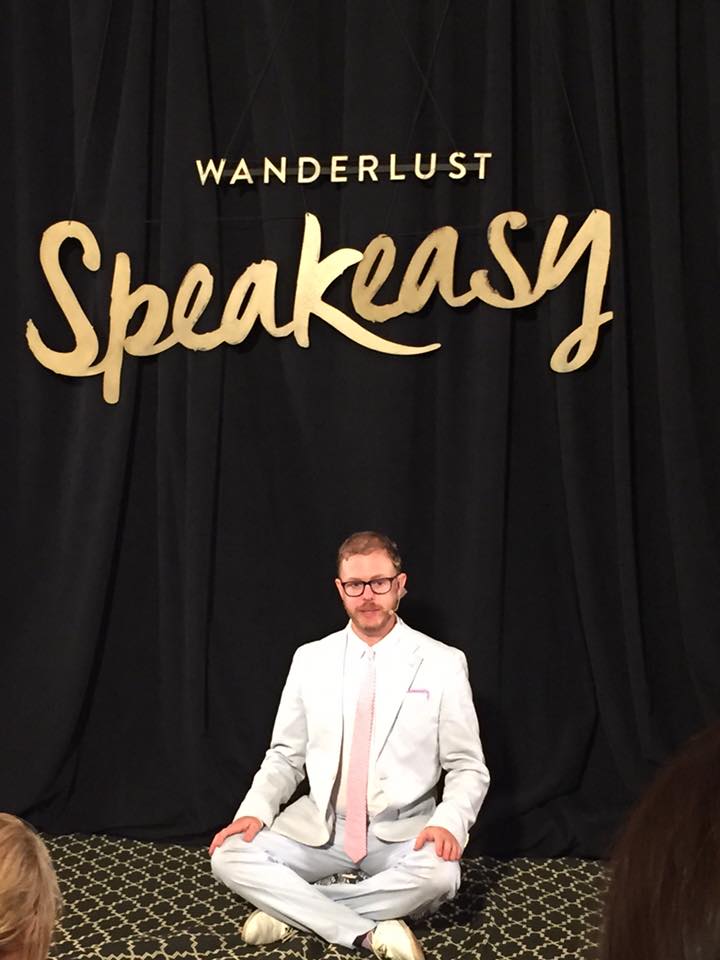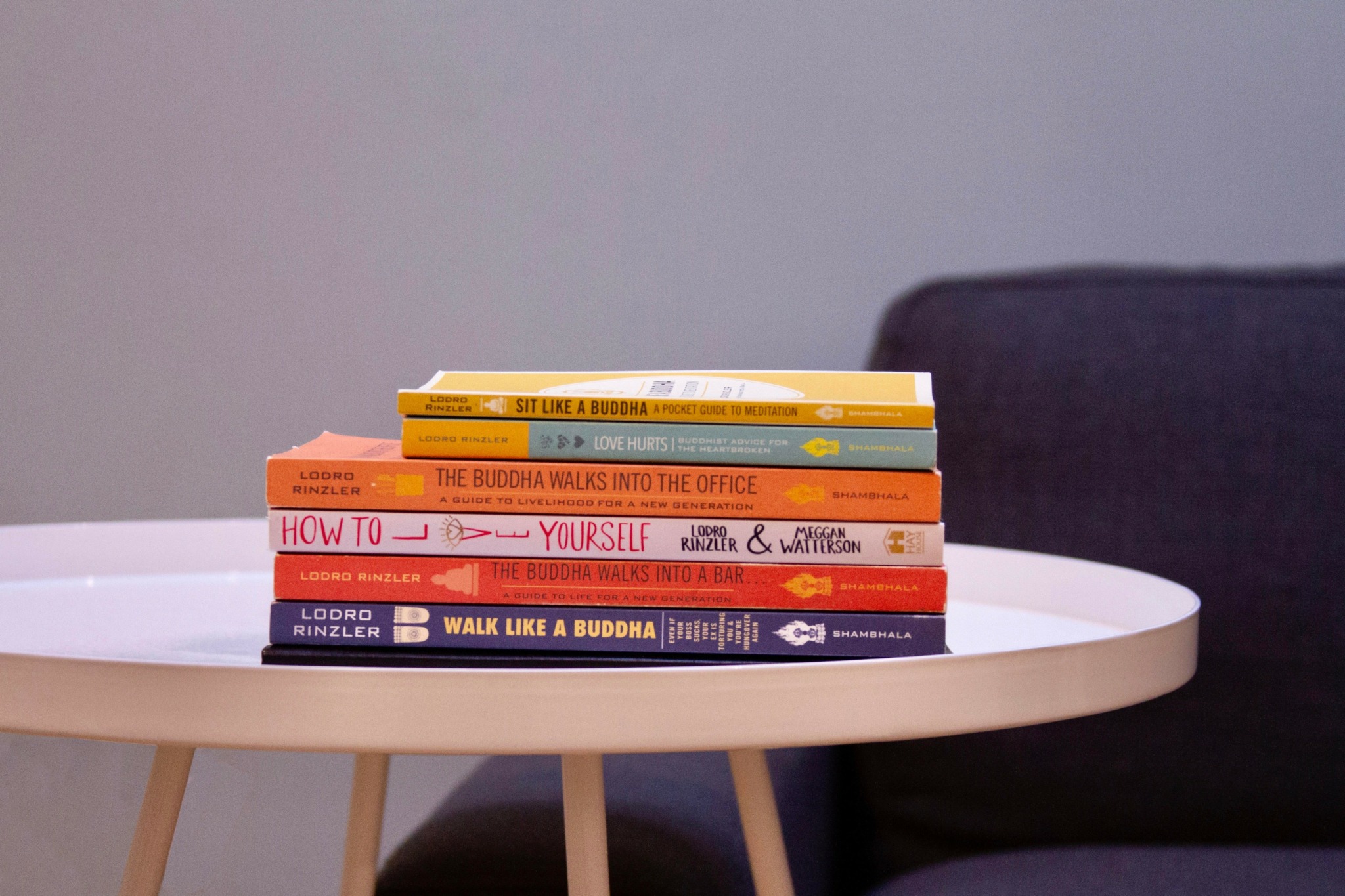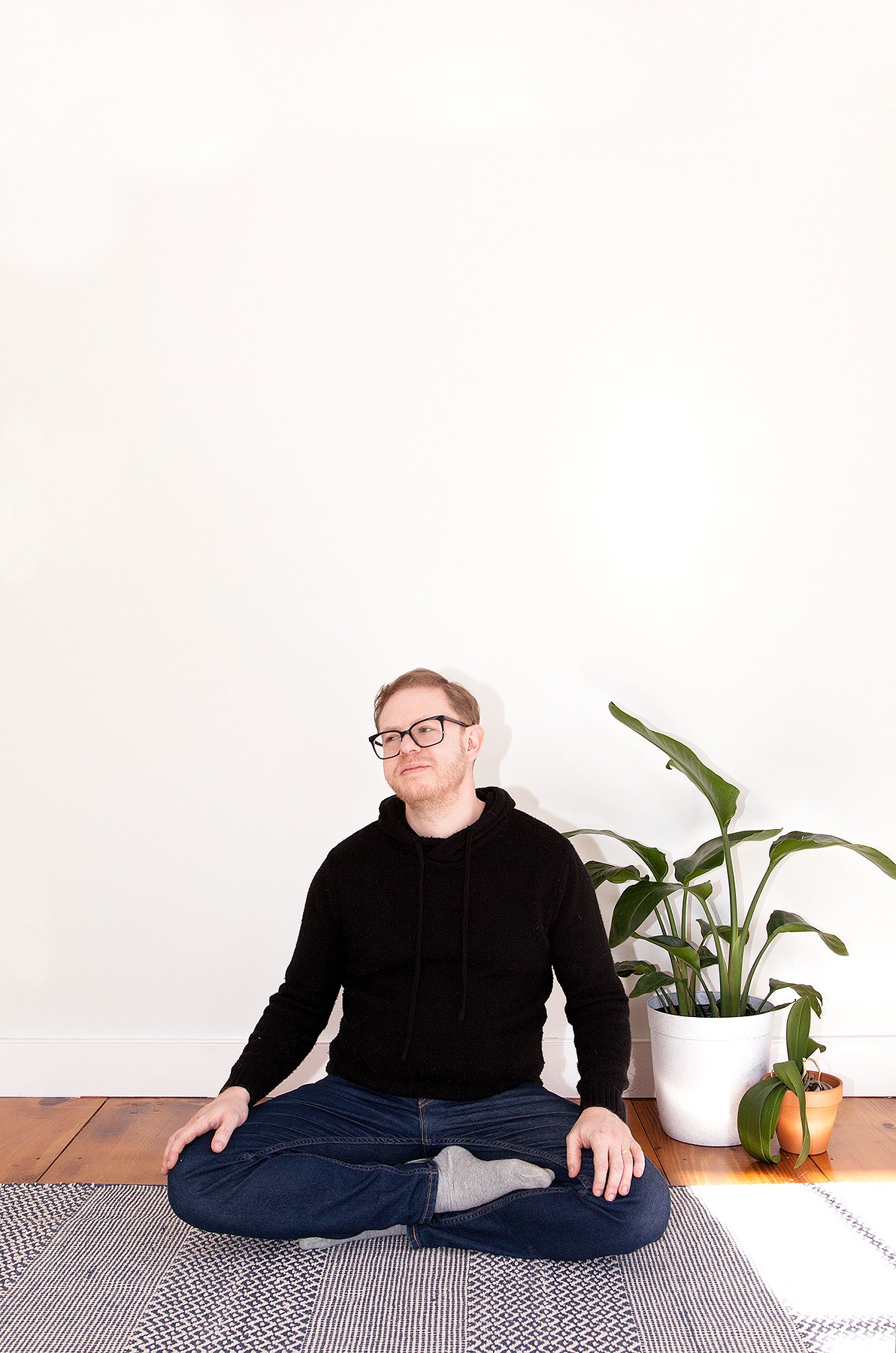We’re excited to introduce you to the always interesting and insightful Lodro Rinzler. We hope you’ll enjoy our conversation with Lodro below.
Lodro, appreciate you joining us today. We’d love to hear stories from your time in school/training/etc.
I was actually raised Buddhist. My parents became Buddhist in their twenties so by the time I came around meditation and various principles were already in the environment. I began meditating on my own when I was six years-old, then attended weekend meditation retreats starting at eleven.
When I was 17, my parents knocked on my door with a brochure in hand. They said, “You know what might make for a great college essay? If you ran off to this monastery this summer and became a Buddhist monk.” Somehow, in my addled teenage state, I agreed. I spent a summer at Gampo Abbey, a small monastery in Nova Scotia. I shaved my head, took the robes and precepts, and maintained silence throughout my time there. By the time I left I was hooked on meditation.
Unfortunately for my parents, their plan back-fired. I got into my top choice for college but all I wanted to do once I was there was meditate and study Buddhism. Because I was lonely I put up signs around the university asking people to come to my dorm’s common room and join me. A dozen people showed up for that first meeting and a meditation group was born.
Since many of these people wanted to meditate but didn’t know how, I was asked to attend a meditation instructor’s training program. Upon completion I began teaching meditation regularly and the group flourished. I’ve been teaching meditation ever since.

Lodro, love having you share your insights with us. Before we ask you more questions, maybe you can take a moment to introduce yourself to our readers who might have missed our earlier conversations?
I’m a writer, mindfulness coach, and meditation teacher specializing in helping high achievers, entrepreneurs, and professionals create a fulfilling, balanced life. My work is rooted in the Buddhist teachings, self-compassion, and practical tools for resilience—blending ancient wisdom with modern insights to support people in living with more ease and authenticity. Many years ago it was said that George W. Bush was the sort of president you could get a beer with. Someone brought that up with me after a talk I gave and said, “You’re the sort of Buddhist teacher I want to get a beer with.” I’ve taken that sentiment to heart.
My journey into this field wasn’t linear. Like many of the people I work with, I spent years chasing external markers of success, only to find that the more I accomplished, the more depleted I felt. It wasn’t until I immersed myself more deeply in meditation and contemplative practices that I began to see a different way forward—one that didn’t require me to sacrifice my well-being for achievement.
Today, I offer a range of services, including mindfulness coaching, meditation classes, workshops, and writing on bridging meditation and everyday life over at The Laundry (thelaundry.substack.com). I also run an online meditation community called The Basic Goodness Collective.
My first book, “The Buddha Walks into a Bar” came out over a dozen years ago and has become an international best-seller, which prompted me to write six more including my latest, “Take Back Your Mind: Buddhist Advice for Anxious Times.”
One of the things I’m most proud of though is that today, after seven books and programs that engage thousands of students, I am still able to maintain a personal relationship with anyone who reaches out to me for meditation advice. I always make time for anyone who wants to engage with my work and answer whatever questions arise for them. I feel like it’s rare that you can write an author and they get right back to you, but that level of personal care is what makes the work meaningful to me.
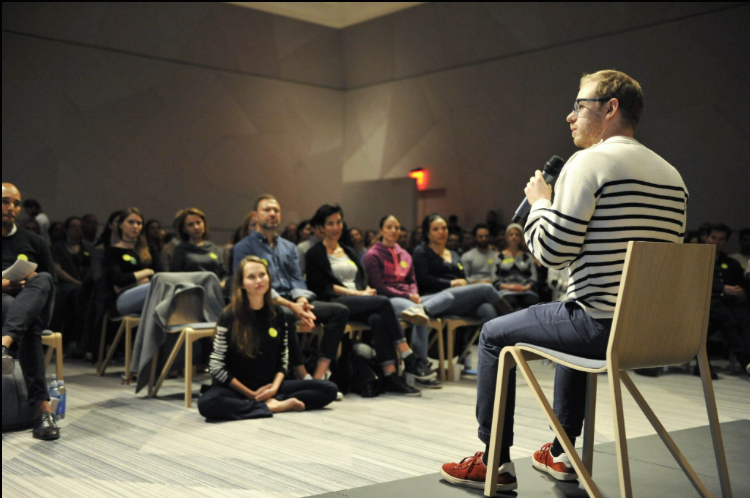
Putting training and knowledge aside, what else do you think really matters in terms of succeeding in your field?
Training and knowledge are absolutely crucial in my field. To teach meditation effectively, you need to have deeply integrated the practice into your own life over many years. Otherwise, it’s like trying to learn the violin from someone who just picked it up last year—it’s not just about understanding the notes, but about embodying the music. Meditation isn’t something you can simply intellectualize; it has to be lived, experienced, and refined over time. This is why I personally work with a small number of people every year to train them to become meditation teachers.
That said, beyond training, the most important quality in this work is empathy and understanding. People don’t come to meditation because everything in their life is easy and peaceful—they come because they’re struggling, whether with stress, burnout, grief, self-doubt, or simply the chaos of daily life. As a teacher and coach, you have to be able to meet people where they are, without judgment, and create a space where they feel seen and supported.
Empathy means recognizing that everyone’s path looks different. It means knowing when to challenge someone and when to offer gentleness. It’s the ability to translate ancient wisdom into something that feels relevant and accessible, rather than rigid or esoteric. Most importantly, it’s about being real—because if you can’t be honest about your own struggles and humanity, how can you help others navigate theirs?
At its core, meditation isn’t about perfection. It’s about learning how to relate to life—and to ourselves—with greater compassion and clarity. And the best teachers aren’t just those with years of training; they’re the ones who understand, on a deep level, what it means to be human.
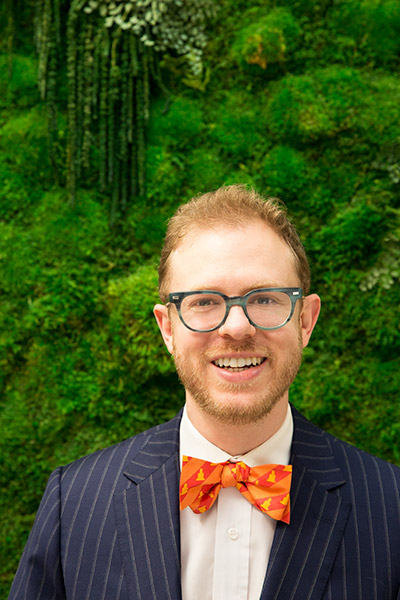
Can you tell us about what’s worked well for you in terms of growing your clientele?
The most effective strategy for growing clientele in my field isn’t about aggressive marketing or flashy promises—it’s about trust, authenticity, and deep human connection. Meditation and mindfulness aren’t just services people buy; they’re deeply personal practices that require vulnerability. So just like in teaching, where empathy and understanding are essential, those same qualities are what truly sustain and grow a client base.
People are drawn to teachers and coaches who make them feel seen, understood, and supported. That means showing up with consistency, sharing insights that genuinely help people (rather than just selling to them), and being honest about the realities of the practice—including the messy, imperfect parts. When people resonate with that authenticity, they naturally want to work with you, whether through classes, coaching, or engaging with your writing.
Word-of-mouth is also powerful in this work. When someone has a transformative experience—whether it’s finding more ease in their daily life, breaking free from burnout, or simply feeling less alone in their struggles—they naturally share it with others. A strong community forms when people feel cared for, and that kind of organic growth is far more sustainable than any marketing trick.
At the end of the day, growing a clientele in this field isn’t about convincing people they need meditation—it’s about embodying the benefits of the practice yourself and creating spaces where others feel welcome to explore it, in their own way and at their own pace. When you lead with understanding, the right people find their way to you.
Contact Info:
- Website: https://lodrorinzler.com
- Instagram: https://instagram.com/lodrorinzler
- Facebook: https://www.facebook.com/LodroRinzlerSpeaks
- Linkedin: https://www.linkedin.com/in/lodro-rinzler-0ba2a838/
- Twitter: https://x.com/lodrorinzler
- Youtube: https://www.youtube.com/lodrorinzler
